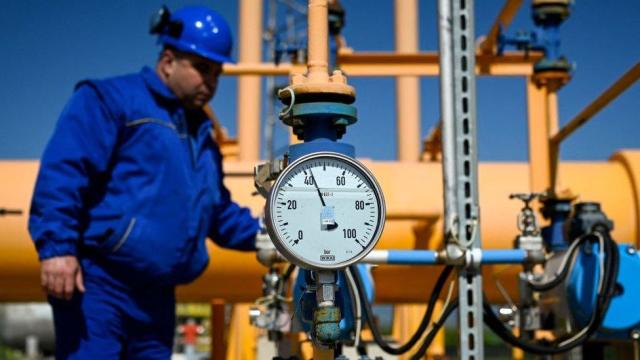Germany accuses Russian gas giant Gazprom of inflating energy prices.

Germany has accused Gazprom, the Russian state-owned gas company, of seeking to raise energy prices by drastically cutting supplies. Gazprom said it will limit gas exports to Germany to less than 70 million cubic metres per day, which is less than half the current rate.
It cited the need to service equipment in the Nord Stream pipeline as the reason. However, Germany’s economy minister, Robert Habeck, stated that it was a “political choice” rather than a technical one. “Clearly, it’s a plan to agitate the market and drive up prices.” On Tuesday, Gazprom said that the Nord Stream 1 gas flow would be reduced from 167 million to 100 million cubic metres per day, but on Wednesday, it was further reduced to 67 million cubic metres per day.
According to energy firm ENI, Gazprom cut its gas supplies to Italy by roughly 15% on Wednesday. Italy, like Germany, is significantly reliant on Russian gas, with 40 percent of its imports coming from Russia.
The action comes just two weeks after European Union leaders agreed to halt most Russian oil imports by the end of 2022 as retaliation for Moscow’s invasion of Ukraine.
After refusing a demand that “unfriendly countries” pay in Russian roubles, Russian natural gas supply to Poland, Bulgaria, Finland, Denmark, and the Netherlands were already halted.
The payment demand was interpreted as an attempt by Russia to bolster the rouble after it was battered by Western sanctions. Demand for roubles was projected to rise as foreign exchange demand increased, pushing up the currency’s value.
Mr. Habeck stated that Russia’s actions demonstrated that European countries must urgently eliminate their reliance on fossil fuels. Germany halted the construction of the Nord Stream 2 pipeline in February, just as Russia began its conflict in Ukraine. The minister said he would wait to see how the decision affected the European and German gas markets, but that suppliers had always been able to get gas elsewhere.
He added, “We don’t have a supply problem in Germany either.” “Gas will almost certainly be kept indefinitely.” In the last several days and weeks, we’ve made significant progress in this area.
“However, we’ll have to wait at least two or three days to obtain a complete picture of how things are progressing right now.”
On Wednesday, the EU and Israel and Egypt inked a framework deal aimed at increasing the amount of Israeli natural gas delivered to European countries.
Picture Courtesy: google/images are subject to copyright
